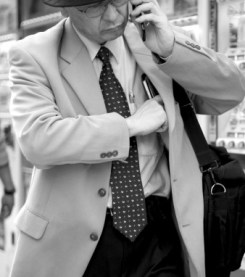
photo: Joshua Rappeneker, creative commons license
The old saw “truth is stranger than fiction” was never more apt than when applied to the Trump Administration. Back in February, its bull-in-the-China-shop approach to national security inspired me to create a recommended reading list—as a public service [!]—comprising a few thrillers that would illustrate how espionage works and how to behave in order to protect our country and its secrets. The books on that list provide a much more exciting and vivid curriculum than tedious daily briefings, for sure. Apparently, my post came too late for Don Jr. Ah, well, authors keep trying. And the parallels keep emerging.
Last Friday Dwyer Murphy in LitHub said he also finds spy literature “freshly relevant.” And apparently, Senator Tom Cotton agrees. Murphy’s essay, “10 Great Spy Thrillers That Could be New York Times Headlines” starts like this:
The cast of characters is almost too much to believe: a Russian pop star, a British tabloid veteran, an attorney with mysterious ties to the Kremlin, a Moscow-funded lobbyist running a White House campaign, a real estate scion married into political power, and the son of the soon-to-be President of the United States.

(photo: David Lytle, creative commons license)
Murphy contends that you can get “uncannily close” to the strategies and schemes filling 2017 newspapers—and understand how the U.S.-Russia relationship got to be what it was and is—all while lounging in your beach chair with some pretty exciting novels. I remember wondering what John le Carré would do after the Cold War ended. Now we know. Trot out his backlist.
Here are Murphy’s picks that I’ve read too:
- The Ipcress File, by Len Deighton – “cynical, paranoid, and savvy”; and the 1965 Michael Caine movie was a winner too
- Night Soldiers, by Alan Furst – The hero of this novel is caught up in the struggle between Nazi Germany and Soviet Russia for Eastern Europe, “a work on a grand scale”—I’m a big Furst fan.
- The Human Factor, by Graham Greene – Like many of Furst’s books, Greene’s classic starts with the protagonist, an MI6 operative near retirement, taking a few slight actions to aid the Communists and, when he’s in too deep, finding out they have an altogether different game on. The film version had an all-star cast and a screenplay by Tom Stoppard.
- Tinker, Tailor, Soldier, Spy, by John le Carré – Murphy calls this the ne plus ultra of the Russian spy game. Le Carré’s A Perfect Spy is the favorite of other writers, including Philip Roth.
- The English Girl, by Daniel Silva – Silva has cited this novel when discussing the Russian interference in the U.S. election. “KGB playbook 101,” he reportedly said.
If you still have room in your vacation suitcase, the other books on his list (which I have not read) are: Red Sparrow by Jason Matthews, David Downing’s Zoo Station, Mesmerized by Gayle Lynds, Martin Cruz Smith’s Tatiana, Seventeen Moments of Spring by Yulian Semyonov, and JFK’s favorite, From Russia with Love, by Ian Fleming. Read all these and you will be every bit as well prepared to manage our country’s security services as some of the people actually doing so.





